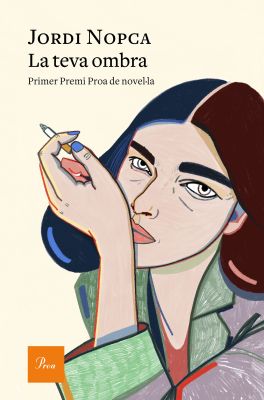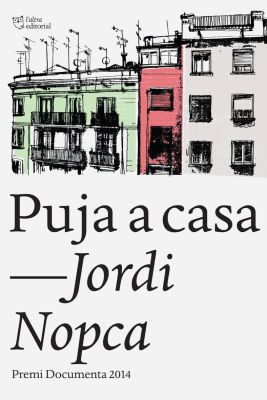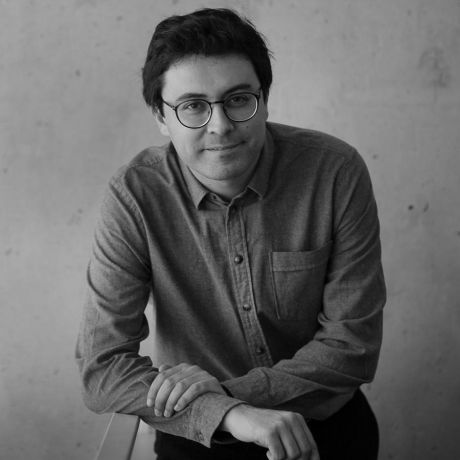A special gift
- The Story
- Dec 20
- 8 mins

Mum is turning sixty-five and I must give her a special gift. I start feeling the pressure the day my granny calls me from the village to remind me – she’s ninety-four, but her head and body are as sharp as a razor. I rule out buying her a piece of jewellery after scouring the neighbourhoods of El Born and La Ribera for two whole evenings.
I can’t find anything that grabs me; besides that, my mother has so much jewellery that not so long ago a second safe was installed in the room where I’d slept until I had the luck — or privilege, as she claims – to fly the nest. One morning, at breakfast, I tell a co-worker that I’m trying my hardest, in vain, to find the perfect gift for my mother’s 65th birthday.
“That’s understandable,” she replies. “It’s an important milestone.”
She asks me if she’s retiring at the same time and I say no: she has applied for a five-year extension at the faculty, where she will now be Professor Emeritus of Sanskrit Language and Literature.
“She always says that when she retires, that position will be done away with, and that Sanskrit will be dead and buried at the University of Barcelona.”
“Would it be a great loss?”
My co-worker has a liberal view of existence that also applies to culture. Why should such a subject be kept up, if there’s no demand?
“She’s dedicated her whole life to it,” I reply.
What I really wanted to tell her is that a public university should be able to pass on knowledge that is perceived as minority, albeit of undeniable value. I don’t because I sense that the comment would spark a debate that would tense our bodies a little more, bodies burning for a sneaky encounter outside the bank where we work. It would also distract us from the matter at hand.
“For the time being, I’ve explored the jewellery option, but it doesn’t inspire me,” I go on, to get back to the topic of my mother’s gift.
“A special trip away would be a better idea.”
“You’re right.”
That evening I call my father to find out what he thinks. All three of us should go. For a long weekend would be enough. Prague, Vienna and Berlin spring to mind, three places I’m sure she’d like to return to.
“The only trip I’ve left to do is the one when I die.”
I can’t help but get into an argument with my father that with my co-worker would have brought us close to an abyss, at the bottom of which was a huge bed and the two of us rolling around in it. Why can’t he be a little more generous? Can’t he see that mum would be excited about a trip? I even suggest we club together for the gift, and then he’d spare the effort of having to go buy something or even of having to give it thought.
“I see you don’t think much of me!” he says. “I’ve got some ideas.”
“Oh, really? Like what?”
“I saw this super bag the other day…!”
It’s a terrible idea: the last bags he had given her had ended up in the shed. But Dad still had something else in mind.
“...and I’ll take her out to dinner on her birthday. This year it falls on a Friday, right?”
“On a Sunday.”
I hate having to overreact in the somewhat obnoxious role of a responsible son. To somewhat ease the tension between us I agree to think of an alternative to a trip.
The days go by and it’s impossible to come up with a gift that seems special enough to me for my mother’s 65th birthday. I avoid discussing the topic further with my co-worker, even though we still have breakfast together, and I suspect she’ll soon be cheating on her husband with me: younger, stronger, and perhaps smarter than him. I don’t want to be her sloppy seconds, but at the same time I can’t wait until the next company dinner to sit next to her and refill her wine glass at every turnabout, until en route to the first karaoke she takes me along a secret passage that leads to the parking lot where her Opel Corsa awaits us, the same electric red she has chosen to paint her nails.
The experience promises a thirty-second flight. My mother, an air surfer. My mother, a magnificent human cannonball.
My quest starts to point in the right direction the evening I think of searching ‘new experiences’ in a trend magazine that Google routinely recommends to me. There I find the first wind tunnel in the city, a dinner in the dark – with a luxurious menu that features insects in every dish –, a day of rafting, an escape room in a haunted house and a paragliding flight in Montseny. Each idea has pros and cons. I list them as my index finger continues to scroll down and discover new ideas. When I come to the idea of a travelling circus that will be in the city for the next ten days, I have a bit of an epiphany: I’ve just found what I was looking for. I go to the website and check out the price, availability and safety of the somewhat whimsical gift I’ll give my mother. There is a before and an after to turning sixty-five, so I want to give her an adventure that has nothing to do with sitting through a show crammed with acrobatics and clowns, but that ties in with one of my mother’s dreams: when I was little she would often tell me that she’d like to be a bird and be able to glide through the sky. The experience promises a thirty-second flight, catapulted from inside a giant cannon with an upward trajectory of up to one hundred metres that ends with a free fall into a large net above the sea. My mother, an air surfer. My mother, a magnificent human cannonball.
She is as excited about the gift as I had imagined. All three of us head to the Mar Bella beach, where the circus tent and the star attraction are set up, thanks to which the owners have been raking it in since a user accidentally fell into the cannon after a show in France when the cannon was fired and the man was found hanging from a tree exclaiming “C’est magnifique!”.
“Are you nervous?”
That’s what my father asks her every five minutes. She starts out by saying no, then he asks her to concentrate on driving properly, and when we get to the car park she admits that she is indeed a bit on edge.
“I’m not surprised,” he says. “If you had given me something like that when I turned sixty-five...”
“You know I wouldn’t have dreamed of it,” she retorted.
“Sometimes the best gift is no gift.”
Since we have a scheduled time for the launch, we leave behind the queue of those who have not yet bought tickets and head to a room with about twenty pieces of equipment, essential for the flight, hung up.
“Son,” my mother turns to me, just after they give her a red jumpsuit, boots and a helmet. I really appreciate your original gift. I’ve always told you that I’d love to know what a bird feels like when it dives into the void and, instead of falling, can glide smoothly through the sky. But now that this dream is about to come true, I think I’d rather you be the one flying in my place.
My father lets out a snort of laughter. If we had time, I’d let him have it, because he hasn’t made an ounce of effort as far her gift is concerned and he’ll still come out smelling of roses.
“Alright,” I say.
In five minutes I am donning the mandatory equipment and let a stocky man take me to the mouth of the cannon. He is giving me instructions in English, which I only half understand. I gather the most important thing is to keep my arms stuck to my sides, during the flight too, so I can reach the optimal speed and ensure everything goes smoothly.
I feel bad my mother is missing out on it, but I’ll ultimately be the one to soar into the sky, just like one of those flying creatures from Hindu mythology that my mother used to tell me about before bed.
The inside of the cannon smells of gunpowder. My nose is itchy. I poke out my head for a second to see my parents for the last time before the cannon is fired. He has his arm raised, as if saying goodbye to me. Do you really think you’re going to get rid of me this easily? If I had thought this experience were dangerous, we wouldn’t be here. I feel bad my mother is missing out on it, but I’ll ultimately be the one to soar into the sky, just like one of those flying creatures from Hindu mythology that my mother used to tell me about before bed. They always burst into flight at turning points in the plot. I, on the other hand, only have to spend thirty seconds in the air. My life doesn’t have to be transformed in any way. I’ll be back at the bank tomorrow. I’ll deal with some nice clients and others whose utter rudeness despairs me. I will see her, we’ll have breakfast together and I’ll tell her about my Sunday.
At the bottom of my abyss there’s no bed, but a loose net that catches my body, all alone, falling into it after thirty seconds in the air, with the dashed hope that they would have added more gunpowder that they should have and I’d have ended up much further away, in a place from where I couldn’t return.
Publicacions recomanades
 La teva ombraJordi Nopca. Edicions Proa, 2019
La teva ombraJordi Nopca. Edicions Proa, 2019 Puja a casaL'Altra, 2015
Puja a casaL'Altra, 2015
The newsletter
Subscribe to our newsletter to keep up to date with Barcelona Metròpolis' new developments




